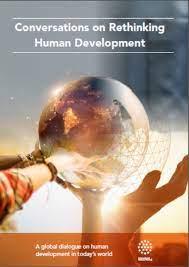
https://council.science/publications/conversations-on-rethinking-human-d...
Full Report here: https://council.science/wp-content/uploads/2020/06/Conversations-on-Reth...
It has been 30 years since the first Human Development Report was published in 1990. Since that time, our world has changed considerably. Current and impending crises in ecological, health, political, and economic systems have become evident. Fundamental shifts are taking place in how we understand ourselves and our connections to local and global societies and our planet in the light of new technologies, socio-political realities and deep environmental changes.
It’s time to rearticulate Human Development for the 21st century. The International Science Council (ISC) has partnered with the UN Development Programme (UNDP) to initiate a global discussion on rethinking Human Development, gathering voices from across the world to answer some of the following questions:
- How could we rethink our conceptual understanding of human development?
- What are the major emerging challenges to human centred development in the world today?
- How can the human development approach inform public debates and decision makers about current and future challenges?
- What would be a meaningful and useful definition of human development – for our changing world?
From March to June 2020, the ISC collected insights from a wide group of experts from diverse disciplinary and geographical backgrounds. This publication includes the interviews and written submissions gathered through this first phase of the project.










Add new comment